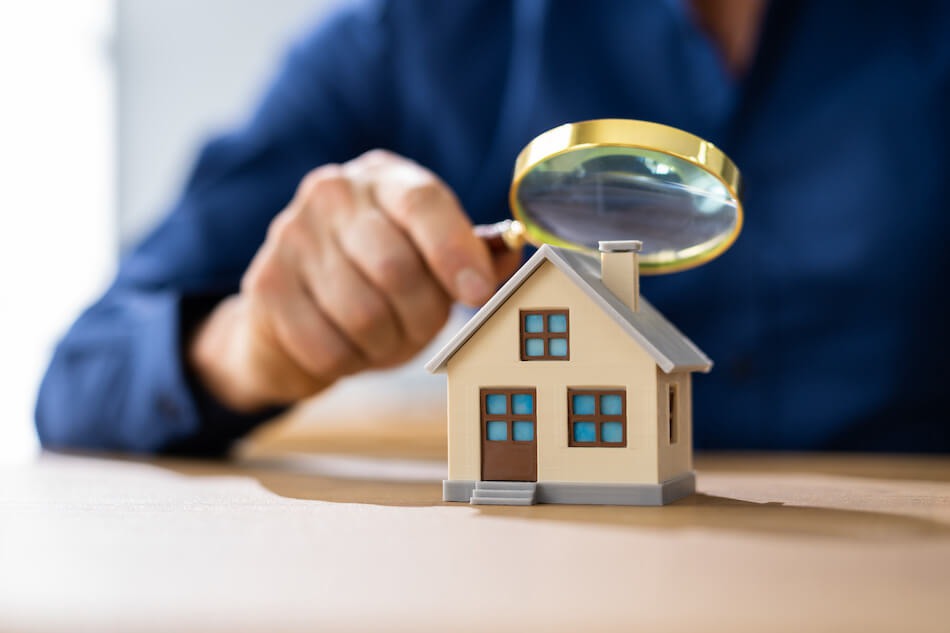What to Expect From Home Examination: a Thorough List and Its Relevance
Understanding what to expect from a home evaluation is important for both purchasers and sellers in the genuine estate market. A complete inspection supplies a thorough checklist that evaluates crucial parts such as architectural stability, significant systems, and general residential property problem.

Importance of Home Inspections
The relevance of home examinations can not be overemphasized, as they serve as a crucial secure for both customers and vendors in the actual estate market. For buyers, a home inspection offers an impartial analysis of the home's condition, exposing prospective issues that might not be visible throughout a casual walkthrough. This procedure helps buyers make informed decisions and bargain repair work or rate modifications prior to closing, inevitably securing their financial investment.
Alternatively, sellers can take advantage of home assessments by addressing issues proactively before listing their home. This can improve the home's marketability and potentially accelerate the sales process. A pre-listing evaluation can also instill self-confidence in possible purchasers, as it demonstrates transparency and a dedication to keeping the residential property.
Moreover, home inspections contribute to the total safety and security and habitability of residential buildings. In recap, home examinations are a necessary component of actual estate transactions, giving important understandings that foster trust fund and transparency amongst all events included.
Trick Components of the List
An extensive home inspection list includes numerous essential components that guarantee a detailed evaluation of a residential or commercial property's problem. The very first element is the structural honesty, which includes the exam of the structure, wall surfaces, and roofing system for any kind of signs of damage or wear and tear. Next, the checklist addresses significant systems such as pipes, electric, and heating and cooling, examining their capability and security.
An additional crucial area is the outside of the home, which entails inspecting exterior siding, windows, doors, and roofing materials for wear and prospective leakages. The list additionally covers indoor components, consisting of floor covering, wall surfaces, ceilings, and insulation, to recognize any issues that may impact comfort or security.
Additionally, the checklist often consists of an analysis of devices, guaranteeing they remain in excellent functioning order. Last but not least, the inspection should assess outdoor spaces, including driveways, decks, and patios, to review their condition and safety. Each of these elements plays a crucial function in providing a detailed understanding of the residential property, eventually aiding prospective customers in making notified decisions concerning their financial investment.
Typical Issues Found
Commonly, home examinations expose a variety of concerns that can vary from minor fixings to considerable safety problems. One common issue is the visibility of water damages, commonly stemming from dripping roofings, plumbing failings, or insufficient water drainage systems. Such damage can cause mold and mildew development, which poses health threats and may call for substantial remediation.

Another usual finding includes electrical systems. Outdated electrical wiring, overloaded circuits, or improper grounding can produce fire hazards and require instant interest. Additionally, issues with cooling and heating additional hints systems, such as poor upkeep or age-related ineffectiveness, can influence comfort and power prices.
Structural problems like cracked structures or endangered framing are likewise regularly noted. These problems can lead to severe effects if not attended to without delay. Insects such as termites or rats might be discovered, suggesting the possibility for significant property damages.
Last but not least, the condition of doors and windows often comes under examination. Poor seals can lead to power loss, while damaged frameworks or glass can affect safety and security and looks. Determining these typical concerns throughout a home examination is crucial for informed decision-making and ensuring the safety and longevity of the home.
Getting Ready For the Assessment
Prep work is vital for an effective home inspection, ensuring that both buyers and vendors can browse the process with confidence. Begin by scheduling the inspection at an equally hassle-free time, permitting sufficient availability to the residential property. For sellers, it is recommended to declutter and clean the home thoroughly, as a clean atmosphere can positively influence the assessor's analysis.

For purchasers, preparing entails assembling a list of details worries or areas of rate of interest to discuss with the inspector. By taking these preparatory steps, both celebrations can set the phase for a efficient and thorough home inspection experience.
Post-Inspection Actions
After the examination is total, both vendors and purchasers must take certain actions to address the searchings for. For purchasers, the first action is to thoroughly examine the inspection report, keeping in mind any type of major problems that may affect their choice. This paper functions as a vital device for negotiation. Purchasers may ask for repair services or credit reports from the seller based upon considerable problems, such as structural issues or out-of-date systems.
Sellers, on the other hand, should evaluate the findings to identify which problems they can attend to prior to wrapping up the sale. Fixing minor repair services can boost the home's allure and possibly bring about a greater price. Conversely, vendors might select to disclose issues to potential purchasers, advertising openness and count on.
In cases where substantial fixings are required, both celebrations may take advantage of acquiring quotes or quotes from qualified service providers. This permits click over here now informed discussions regarding repair duties. Ultimately, it is essential for both customers and vendors to keep open lines of communication throughout this process to make certain a smooth deal. By taking these post-inspection actions, both events can navigate the negotiation landscape with self-confidence and clarity.
Final Thought
Home inspections offer as a vital element in the genuine estate deal procedure, ensuring an extensive examination of a property's condition. Eventually, the value of home assessments can not be overemphasized, as they advertise educated decision-making and add to a smoother genuine estate experience.
For purchasers, a home inspection offers an objective examination of the building's problem, my link disclosing possible concerns that might not be noticeable throughout a laid-back walkthrough.On the other hand, vendors can benefit from home evaluations by attending to concerns proactively prior to providing their residential property (Home Inspection Lockhart).Generally, home assessments expose a range of problems that can range from minor fixings to substantial safety and security problems. Determining these usual issues throughout a home assessment is vital for educated decision-making and making certain the safety and security and longevity of the building
Preparation is important for a successful home inspection, making sure that both vendors and buyers can browse the procedure with confidence.